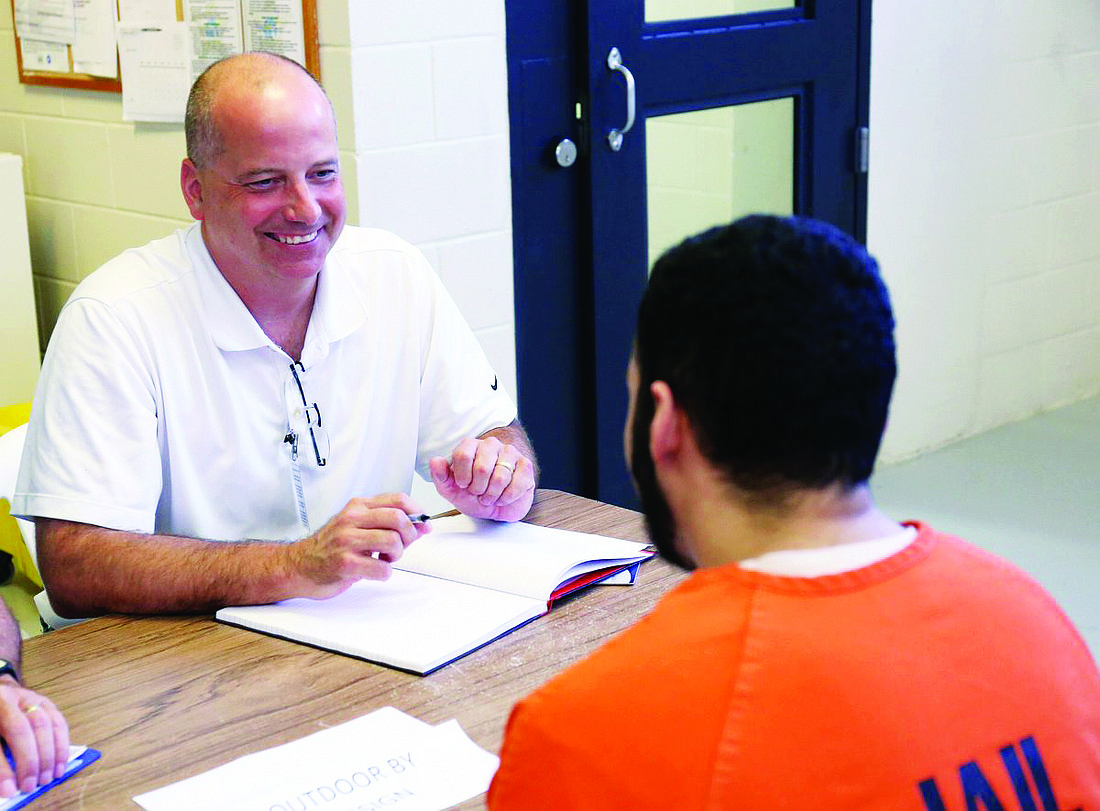- November 28, 2024
-
-
Loading

Loading

In a continuance of the county’s desire to find alternative methods to address jail capacity issues and reduce repeat-offender rates, the County Commission unanimously approved steps toward a new 200-bed facility.
On Oct. 21, commissioners OKed the hiring of a consultant to plan a 200-bed secured correctional facility for people suffering with substance abuse or who have a mental illness.
The new center would be placed near the intersection of East Avenue and Main Street, on the county’s Central Energy Plant site, which is adjacent to several wings of the county jail. Zoning for the site would allow a 10-story structure.
The project, dubbed the Correctional Reintegration Center, would be operated by the Sheriff’s Office.
Commissioner Charles Hines said that over the past few years, there’s been a “significant shift” in the way county residents feel about treating individuals who have been arrested for actions that are the result of mental health or drug abuse.
“These people need to be treated so that we can get them back into society versus being this revolving door coming back into the jail,” Hines said. “That creates the need for more jails, more spaces like that.”
In February, the board approved three recommendations as jail diversion and treatment strategies:
After the board’s approval, funding was incorporated into the Fiscal Year 2021 budget.
However, because of COVID-19 closures in the courts, the early case release program was postponed. Director of Health and Human Services Chuck Henry said the programs should be back on track by spring 2021.
The three-year pilot program is expected to open by July 1, 2021, after hardening of the facility is complete and a contract with First Step of Sarasota is complete. The county dedicated a one-time cost of $651,000 to hardening efforts.
County staff is now looking toward implementation of the 200-bed facility which will serve both adult men and women who suffer with substance abuse or who have a mental illness.
Funding for then project has not yet been identified, Henry said, but it’s likely the total would exceed the $24.4 million charter cap on the amount of bonds that can be issued without voter approval. He said a referendum might be necessary to pay for the center.
Earlier this year, the commission put off a referendum vote for the creation of a Mental Health Care Special District that was planned for the Nov. 3 ballot as residents and the county dealt with the economic blow of COVID-19. In discussions for the special district, commissioners said some funds could be allocated toward jail diversion programs.
Although she said she supported the project, Commissioner Nancy Detert expressed some trepidation over approving a project without knowing the total cost.
“It bothers me, jumping in with both feet on this, having no idea [of the cost],” Detert said.
Sheriff Tom Knight said that although the project will be costly, it will have great benefits for inmates and the county.
Knight’s staff identified 10 people who had been arrested a total of 187 times by either the Sarasota Police Department or the Sheriff’s Office. However, after going through addiction and mental health programs already in place, two of the 10 have been arrested again.
“That’s a pretty good recidivism rate reduction to take that type of person and make that person better and healthier,” Knight said.
Already, staff has identified 404 individuals in jail who are either on medication or self-reporting mental health issues who would be eligible for the new treatment center. The center, Knight said, does not shorten a person’s sentence, it just helps them address health issues while in jail.
The county’s Criminal Justice Commission, which comprises judges, attorneys and substance abuse and mental health care providers, would devise a screening process to determine who is eligible for treatment. Violent offenders would not be considered.
Although Knight will end his tenure as sheriff this year, he said his successor, Col. Kurt Hoffman is in support of the facility.
“We support this project and I think the next administration is going to support this project as well,” Knight said. “We see the benefits of it.”